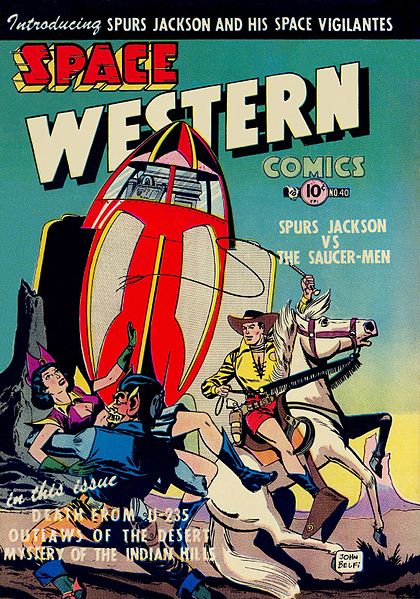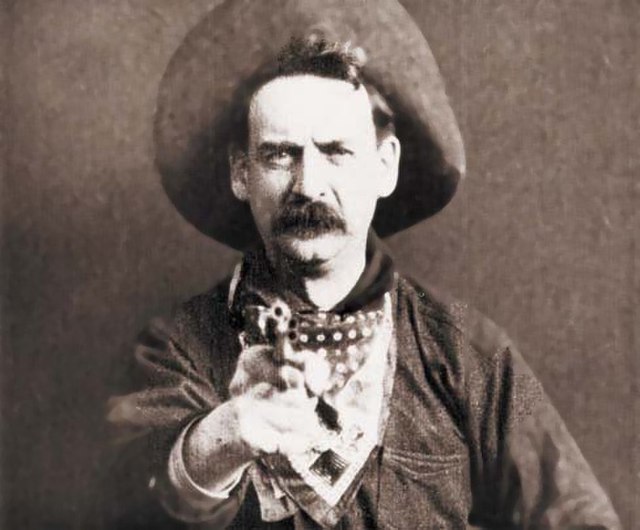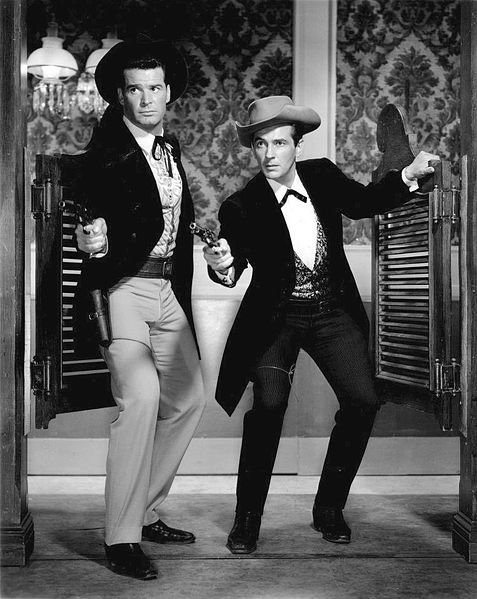Space Western is a subgenre of science fiction that uses the themes and tropes of Westerns within science-fiction stories in an outer space setting. Subtle influences may include exploration of new, lawless frontiers, while more overt influences may feature actual cowboys in outer space who use rayguns and ride robotic horses. Although initially popular, a strong backlash against perceived hack writing caused the genre to become a subtler influence until the 1980s, when it regained popularity. A further critical reappraisal occurred during the 2000s due to critical acclaim for Firefly.
Early space Western print media (1952).
Rear cover of first issue of Galaxy featuring criticism of the space Western subgenre
The Western is a genre of fiction typically set in the American frontier between the California Gold Rush of 1849 and the closing of the frontier in 1890, and commonly associated with folk tales of the Western United States, particularly the Southwestern United States, as well as Northern Mexico and Western Canada.
The Lone Ranger, a famous heroic lawman, was with a cavalry of six Texas Rangers until they all, except for him, were killed. He preferred to remain anonymous, so he resigned and built a sixth grave that supposedly held his body. He fights on as a lawman, wearing a mask, for "Outlaws live in a world of fear. Fear of the mysterious".
Justus D. Barnes in Western apparel, as "Bronco Billy Anderson", from the silent film The Great Train Robbery (1903), the second Western film and the first one shot in the United States
Gary Cooper in Vera Cruz
James Garner and Jack Kelly in Maverick (1957)






